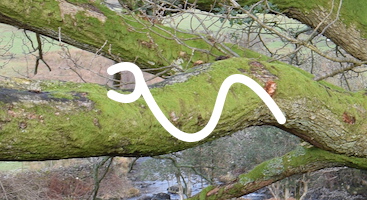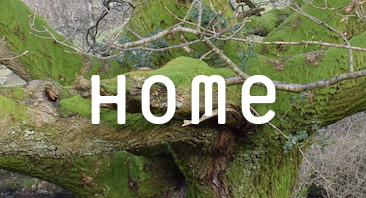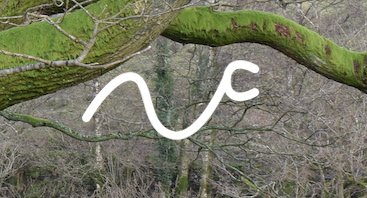Chris Brownsword responds to J.H. Prynne’s latest work, Of Better Scrap (Face Press, 2019)
‘At the door yet so open, cage evenly enhanced porous.’ That’s how this latest sequence of poems from J. H. Prynne begins. And it continues in a similar manner for the next fifty pages. If you dislike Prynne, you probably haven’t bothered reading this far into the review; whereas if you like him, the prospect of a new pamphlet hot on the heels of last year’s Or Scissel is cause for celebration.
Personally, I like him. No, that’s an understatement. He’s one of a handful of poets, novelists and philosophers who have had a profound impact on my life. I don’t care what his detractors say, I’ll go to my grave championing his work. But first of all, let me make one thing perfectly clear: I don’t understand his poems in the conventional sense. Nor do I want to.
I’ve never taken psychedelic drugs, but reading Prynne is what I imagine diving headfirst into a swimming pool full of liquid LSD would be like. Deep time memories swarming in the bloodstream. New configurations of temporal and spatial awareness.
If you set out to study Prynne, then, yes, he might be termed ‘difficult’ or ‘impenetrable.’ After all, how do you scan a poem such as Finding Where Joins, which begins, ‘As why forward way will open across yet to be...’, without scratching your retinal lens? Each line is like navigating a series of rapids. Sure, it’s difficult, but once you find the rhythm you’ll have less chance of being torn apart on jagged rocks. And the poems do have a rhythm. ‘Land So Few’, which brings proceedings to an end, even introduces some of the musicality of traditional poesy: ‘Now known nor new, one mend or mind attune/how so for more to do, where lend and saw...’
Before venturing further, maybe I should explain how I first encountered Prynne’s work. I was flicking through the latest Bloodaxe catalogue, unsure of which titles to select. This was back in 2005. I didn’t know anyone else who read poetry, and I was a little ashamed of reading it myself, so my purchases were usually selected in an arbitrary fashion. I didn’t realise there was such a thing as ‘mainstream’ and ‘experimental’ poetry. Better still, I was entirely in the dark regarding past divisions and longstanding hostilities. It was all just different ways of seeing the world.
In the end, I selected three titles from the catalogue. The first was Where the Sea Stands Still by Yang Lian. The blurb said he was part of something called The Misty Poets movement. That sounded pretty cool to me, so Lian made it onto my purchasing list. Next, I went for Paradise by Elena Shvarts. Sadly, she died a few years ago, and I think Bloodaxe are using a different photo on their website now, but her author profile at the time made her look like she could devour Dostoevsky for breakfast. Finally, I went for Prynne. I’d never heard of him. But he was the only author in the entire catalogue who didn’t provide a photo of himself. I liked that.
When the books arrived, I saved the Prynne collection for last, because it was the thickest. The early poems were great. I didn’t understand them, but they looked interesting on the page, typographically similar to another Bloodaxe author, Denise Levertov, and they were full of strange and beautiful images that reminded me of Mina Loy or Pierre Reverdy. Eventually, I made my way to the more recent sequences. I thought of Ballard’s The Atrocity Exhibition and Burroughs’s Soft Machine. But no, this was something else entirely. Dada? Nada. I couldn’t hear the maniacal laughter of Tristan Tzara echoing across the centuries. I was lost. No point of reference. Mind blown.
Later, I entered into a very brief correspondence with Prynne. I sent him some of my poems; I was an idiot, and cringe even to think of this now. I’m almost one hundred per cent certain he thought they were awful. I’m one hundred per cent certain they were.
Later still, I put together a slim anthology of poetry titled In Blossoms Atop Reeds it Flares. All I wanted was to gather some poets whose work I enjoyed. Prynne kindly and unexpectedly gave me permission to use his poem ‘Refuse Collection’. The book was expensive to produce and I lost every penny I put into it. But most of the poets I wanted to include were in there, so I didn’t care.
I exchanged two or three more emails with Prynne after that. My dispatches were no doubt ridiculous. Terrified of exposing myself as a fake to him, as the guy who loved his poetry but didn’t know what any of it meant. Our communication ended, but now and then over the years I’d receive his latest pamphlet with the author’s compliments. That was nice of him. He didn’t have to do it.
Well, all of that seems a lifetime ago now. But Prynne is still producing pamphlets at a rate of about one a year, and I still don’t understand them, but I continue to find them as magnificent as ever.
It’s hard to rate Of Better Scrap in terms of his previous work. Most of the poems are limited to a single stanza. They’re dense. Certain phrases reoccur. What’s easier will be for his detractors to pass the whole thing off as Cambridge elitism.
I’ve always resented that charge against him, though. When the Bloodaxe package arrived all those years ago with Prynne’s Poems inside, I was working as a cleaner on the outskirts of a northern industrial city. I liked the abstraction and dissonance in his work. I didn’t care that his poems said nothing about scraping vomit off urinals with a butter knife. They spoke to me of vast historical cycles. Endless growth and decay. Animal migrations. Maybe it was escapism I was looking for. If so, it was an escape from the noise and clatter of humans into the unknown of the real world.
Reading these poems, I have the sensation of being stranded in the flux of evolutionary drift. Strange forms rising from the chaos. Like the poet/philosopher Leopardi’s view of nature, forever refashioning itself into new forms and shapes : ‘They will so pass/Swiftly as day-mist, as moorland all to stream.’ I doubt this is what Prynne intends. But it’s what I feel every time I read him.
I can’t imagine studying Prynne in a classroom or lecture hall. I see his output as best read while taking a break from wandering an unfamiliar city or forest. Indeed, Of Better Scrap is roughly the size and shape of a road atlas. But it speaks to me of a landscape unmapped, one that is in perpetual change, one as mysterious and awe-inspiring as the electrical storm that graces its cover.



